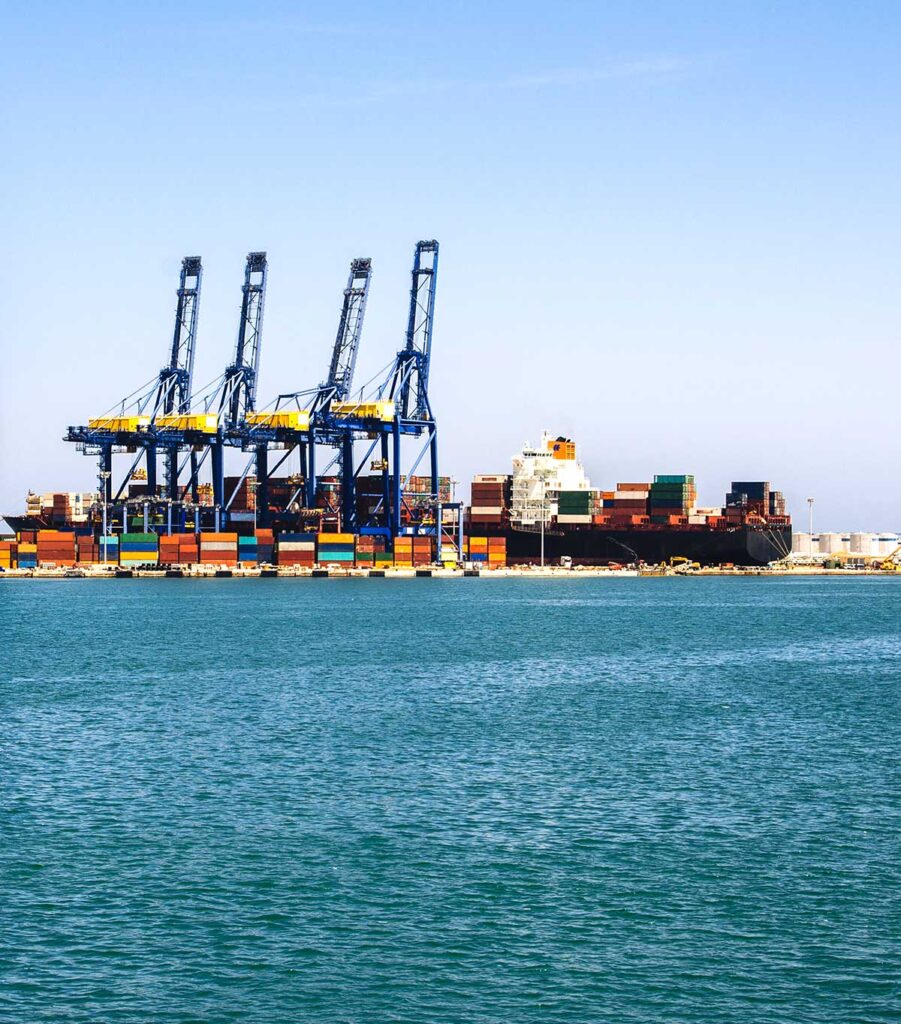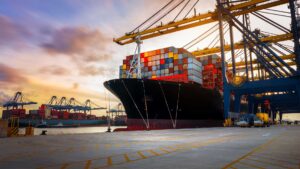Abu Dhabi: What Makes it Significant in the Transport and Logistics Sector?
Abu Dhabi, the capital of the United Arab Emirates, has increasingly positioned itself as a vital logistics hub in the Middle East. With its strategic location, state-of-the-art infrastructure, and visionary leadership, the emirate is rapidly transforming into a key player in global logistics and supply chain management. It also features an expansive network of routes for global freight forwarding encompassing air, land, sea, and rail freight.
In this article, we will delve deep into Abu Dhabi’s strengths and capabilities, making it one of the leading key players in the region’s transport and logistics sector.
Strategic Location and Infrastructure
Abu Dhabi’s geographical location at the crossroads of Europe, Asia, and Africa offers a significant advantage for logistics operations. Its proximity to major shipping routes in the Arabian Gulf facilitates efficient maritime transportation, making it a crucial gateway for international trade.
The emirate’s infrastructure is world-class, featuring a well-developed network of ports, airports, and highways that support its logistics operations:
- Ports
Abu Dhabi Ports has a proven track record in handling over 22.5 million tons of bulk and general cargo every year. It also registered the quickest truck turnaround time of only 12 minutes.
One of its ports, the Khalifa Port, is one of the region’s grandest and most state-of-the-art deep-water ports. It’s equipped with advanced facilities and is integrated with the Khalifa Industrial Zone Abu Dhabi (KIZAD). Thus, it plays a central role in Abu Dhabi’s logistics strategy and position as a global trade hub.
- Airports
Abu Dhabi International Airport, a major gateway for passengers and cargo, serves as a key logistics hub connecting the emirate with the rest of the world. The airport’s facilities support efficient air cargo operations, contributing to Abu Dhabi’s growing reputation in logistics.
- Road Network
The emirate boasts a well-maintained road network that facilitates seamless transportation of goods within the UAE and across neighboring countries. This robust infrastructure supports the efficient movement of cargo from ports and airports to various destinations.

Economic Diversification and Logistics Development
The Abu Dhabi government has recognized the importance of logistics in its economic diversification strategy. The emirate’s Vision 2030 aims to reduce reliance on oil and gas by fostering growth in other sectors, including logistics and transportation. This vision is supported by several key initiatives:

- Khalifa Industrial Zone Abu Dhabi (KIZAD)
As one of the grandest industrial zones in the region, KIZAD serves as the foundation of Abu Dhabi’s logistics strategy. It offers a range of logistics and industrial facilities, including warehouses, distribution centers, and manufacturing units. KIZAD’s integrated logistics capabilities enable enhanced supply chain operations and improved efficiency.
- Abu Dhabi Ports
Abu Dhabi Ports is spearheading the development of port facilities and logistics services in the emirate. Its initiatives include expanding port capacity, enhancing cargo handling capabilities, and developing new logistics infrastructure to support growing trade volumes.
- Logistics and Supply Chain Innovation
Abu Dhabi is embracing technological advancements to drive innovation in logistics. The emirate is investing in smart logistics solutions, including automated warehouses, advanced cargo tracking systems, and digital platforms to improve efficiency and reduce operational costs.
Sustainability and Future Growth
Sustainability is a key focus for Abu Dhabi’s logistics sector. The emirate is committed to reducing its environmental impact by adopting green logistics practices and promoting sustainable transportation solutions. Initiatives include:
- Energy Efficiency
Abu Dhabi is investing in energy-efficient technologies and practices to minimize the environmental footprint of its logistics operations. This includes adopting renewable energy sources and implementing energy-saving measures in logistics facilities.
- Green Logistics
The emirate is exploring green logistics solutions, such as electric and hybrid transportation vehicles, to reduce emissions and promote sustainable practices in the supply chain.
- Future Development
Looking ahead, Abu Dhabi is set to continue its expansion in the logistics sector. Planned developments include enhancing port capacities, building new logistics centers, and integrating advanced technologies to stay at the forefront of global logistics trends.

In a Nutshell
Abu Dhabi’s logistics sector is undergoing a remarkable transformation, driven by its strategic location, cutting-edge infrastructure, and commitment to economic diversification. As the emirate continues to invest in innovative technologies and sustainable practices, it is poised to become a leading logistics hub in the Middle East and beyond. With its ambitious vision and forward-thinking approach, Abu Dhabi is well-positioned to navigate the future of global logistics and supply chain management.
TFI: Your Reliable Logistics Company in Abu Dhabi
Whether you are importing or exporting goods, working with a professional logistics company in Abu Dhabi is the key to a successful trade. At TFI, we support your business by offering a range of logistics solutions under one roof. These include global freight forwarding, customs brokerage, and Import of Record (IOR) / Export of Record (EOR).
Speak to our experts today to discuss your Abu Dhabi logistics needs!




